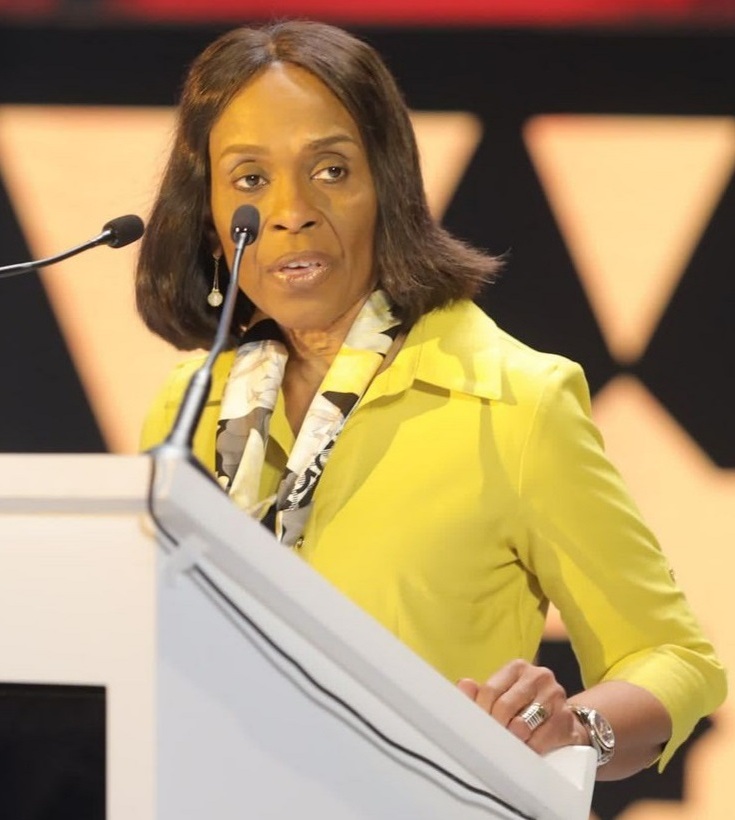By Sarah Mokobi Kimani
Published May 31, 2013
 Parliamentarians in Kenya raised their salaries to US$120,000 per annum on May 28, 2013. This is not just objectionable in a country with an average annual salary of $1,700 but the move is also ill-timed as the country is facing challenges like decaying or non-existent infrastructure, runaway insecurity, high inflation rate and unemployment of 60%; only 18 % of the active labour force is employed in the public sector where the lowest salary is US$1,056 per year.
Parliamentarians in Kenya raised their salaries to US$120,000 per annum on May 28, 2013. This is not just objectionable in a country with an average annual salary of $1,700 but the move is also ill-timed as the country is facing challenges like decaying or non-existent infrastructure, runaway insecurity, high inflation rate and unemployment of 60%; only 18 % of the active labour force is employed in the public sector where the lowest salary is US$1,056 per year.
This unfortunate act of greed came at a time when the Salaries and Remuneration Commission (SRC) that was established under the new constitution to bring sanity to salaries paid to public state officers, had reduced the astronomically high salaries members of the previous Parliament had irregularly allocated to themselves. This was also aimed at preventing law-makers from their habitual trend of increasing their pay at will. The constitution not only empowers the SRC to oversee the salaries of public servants but also sets the number of government ministries at 22 to cut down government expenditure.
According to International Monetary Fund, Kenya is one of the poorest countries in Africa; it is ranked at position 154 out of 183 countries in the world with a per capita income of US$250. As such, it cannot afford the steep salaries of US$120,000 per annum that the MPs had irregularly allocated to themselves. Many Kenyans welcome President Uhuru Kenyatta’s sentiments that MPs respect the SRC’s verdict as it is backed by law.
RELATED: Kenya Tourism Federation Chief Elected to East African Business Council Boar
 In 2010, MPs awarded themselves hefty pay that earned the Prime Minister (the post has now been abolished under the new constitution) more than 33% than the British premier and 10% more than the US President. Parliamentarians voted to be paid a basic salary of US$44,000 per year, a sitting allowance of US$25 for each appearance in parliament, another sitting allowance of US$25 for each parliamentary committee attended. What was even more disturbing was the fact that each MP now sits in a US$3,000 seat in the refurbished chamber. Their total perks came to $126,000 per MP after tax. They went on to award themselves a bonus send off amounting to US$105,000.
In 2010, MPs awarded themselves hefty pay that earned the Prime Minister (the post has now been abolished under the new constitution) more than 33% than the British premier and 10% more than the US President. Parliamentarians voted to be paid a basic salary of US$44,000 per year, a sitting allowance of US$25 for each appearance in parliament, another sitting allowance of US$25 for each parliamentary committee attended. What was even more disturbing was the fact that each MP now sits in a US$3,000 seat in the refurbished chamber. Their total perks came to $126,000 per MP after tax. They went on to award themselves a bonus send off amounting to US$105,000.
It was on this premise that SRC was created after Kenyans had protested. From that Parliament—the 10th after independence from Britain in 1963–only about 18% made it back to the 11th Parliament after the March 4, 2013 general elections. And Kenyans had sighed with relief only for the newly constituted house to turn around and demand the perks over which the electorate had punished the 10th Parliament.
RELATED: Global Airline Profit Expected to Grow to US$7.5 Billion in 2013
It isn’t true for the MPs to claim that their salaries had been reduced by SRC because the pay for public servants, including MPs, was set before Kenyans went to the polls on March 4, 2013. From this, it was clearly stated that any one who made it Parliament as MP would earn US$75,106 annually. It was stressed that any one who was unhappy about the pay should not agree to be sworn. It was assumed that any one who agreed to be sworn in had agreed to the terms and conditions of their job.
“We really thought we had elected new and patriotic law-makers who’d the interests of Kenyans first, but they have proved to be hyenas; given a second chance I will send them all home,” a visibly disappointed business man from Nairobi’s Kawangware area said.
Kenyan MPs earn more than most politicians even those of the Developed Countries that give aid to Kenya. British MPs, for example, earn US$106,234 annually because the GDP of their country is US$15.7 Trillion. What’s the GDP of Kenya, a country that depends on aid to meets its budget?
RELATED: International Tourism Receipts Grew by 4% in 2012
 Kenyans are worried that by allocating to themselves higher pay, MPs could provoke demands for higher wages from other civil servants–teachers, police, doctors, nurses–who have been demanding better pay over the years.
Kenyans are worried that by allocating to themselves higher pay, MPs could provoke demands for higher wages from other civil servants–teachers, police, doctors, nurses–who have been demanding better pay over the years.
Paying the amount of salaries demanded by the MPs could undermine President Kenyatta’s pre-election pledge to achieve double-digit economic growth in his five-year term. To ensure this happens, Kenyatta opted for a slimmer government as part of efforts to make savings. He has proposed a cabinet of 18 members instead of the maximum 22 granted by law to ensure less government expenditure so that more money is allocated towards development given the country is growing at 5.4%.
How can MPs increase their salaries to astronomical levels when the country lacks the cash to repair, let alone build, infrastructure like roads and bridges that were damaged during the heavy rains that pounded the country in March and April 2013.
Kenya lacks the money with which to tackle rising insecurity levels in places such as Nairobi, Garissa, Bungoma and Busia.
RELATED: Air Seychelles celebrates the start of flights to Hong Kong
The current ratio of one police officer to every 2,000 citizens could explain why there is mounting insecurity all over the country; the ideal ratio, according to the United Nations, is a police officer to every 500 citizens. Any available money could be used on hiring more police officers, training them better, equipping them with better machinery for fighting crime and improving their pay, living and working conditions instead of giving it to MPs.
The government needs money for universal primary and secondary education. Though primary education is free in public schools, it faces an acute shortage of teachers; the ratio of teachers to pupils is 1:140 instead of the recommended 1:40.
A similar plight faces the health sector that has only 10,000 doctors to the population of 40 million; that is a ratio of 1:4,000. Hospitals and health centres lack adequate medicines, laboratories and even gloves.
Sarah Mokobi Kimani, from the Kenya Private Sector Alliance’s Youth Empowerment Project, is an intern in Journalism and Public Relations at ArtMatters.Info.




